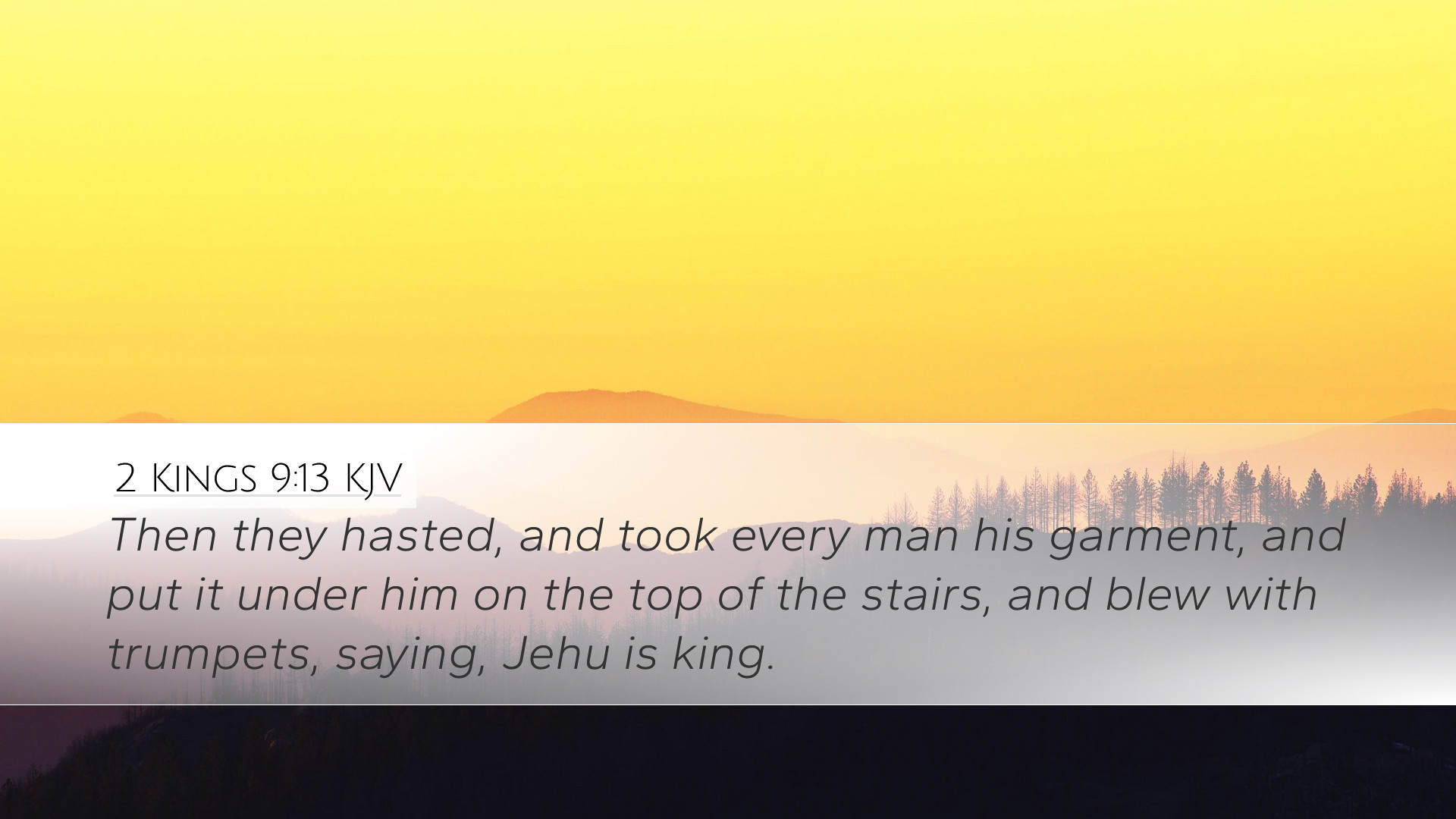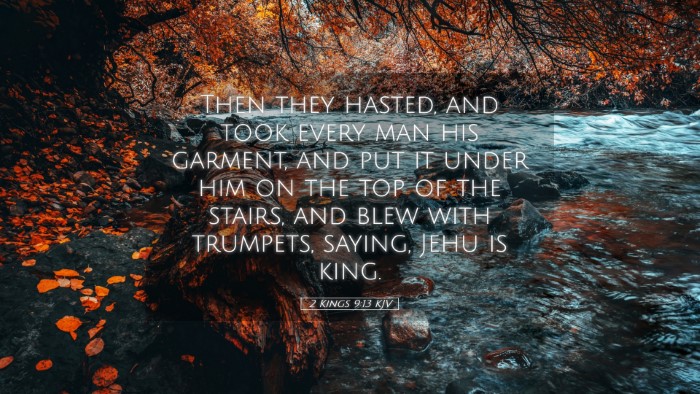Commentary on 2 Kings 9:13
Verse Context: 2 Kings 9:13 states, "Then they hastened, and took every man his garment, and put it under him on the top of the stairs, and blew with trumpets, saying, Jehu is king." This scene marks a pivotal moment in the history of Israel, depicting the anointing of Jehu as king, a significant and divinely orchestrated event.
General Overview
The passage captures the fervor of the Israelites upon recognizing Jehu’s kingship. The immediate and unified actions of the people demonstrate their support and the significance of Jehu’s anointing. This moment is pivotal as it sets the stage for Jehu's violent purge against the house of Ahab and the restoration of true worship in Israel.
Insights from Commentators
Matthew Henry's Commentary
Matthew Henry emphasizes the importance of the people’s actions in this verse, noting that traditional customs were fulfilled in proclaiming Jehu as king. By casting their garments under him, the Israelites expressed their allegiance and recognition of his authority. Henry draws parallels to the practice of honoring a king and highlights this act as an indication of Jehu's divine right to rule, reinforcing God's sovereignty in appointing leaders.
Albert Barnes' Notes on the Bible
Albert Barnes provides further insight into the significance of the trumpet being blown. He notes that this action signified the beginning of a new reign, and the act of hastening to honor Jehu reflects a collective enthusiasm among the people, symbolizing a break from the previous corrupt leadership under Ahab. Barnes points out that the people recognized the urgency in establishing a new order, demonstrating their desire for change and restoration.
Adam Clarke's Commentary
Adam Clarke elaborates on the symbolic meanings inherent in this verse. He argues that the garments laid before Jehu were not only a mark of respect but also an acknowledgment of his appointment by God. Clarke highlights that the act of blowing trumpets served a dual purpose: it was a call to arms as well as a declaration of Jehu’s kingship. This reflects the military and spiritual dimensions of kingship in Israel. Clarke notes the spontaneity of the crowd's response as a sign of their desperation for salvation from Ahab’s idolatrous reign.
Theological Implications
This passage underscores the theme of God's sovereignty in human affairs. The hasty acknowledgment of Jehu's kingship illustrates that God is at work behind the scenes. The anointing signifies a divine commission, where Jehu is chosen to fulfill God’s judgment against the wicked house of Ahab. The triumphant declaration of Jehu as king invites reflection on God’s plans for His people, emphasizing that He can raise leaders to fulfill His purposes.
Application for Today
- Church Leadership: This passage encourages contemporary church leaders to consider the divine calling upon their lives and the support they receive from their congregations.
- Divine Sovereignty: The actions of the people remind believers today that God's purposes will prevail, often through unlikely individuals and circumstances.
- Unity in Purpose: The collective action of the Israelites serves as a model for the church to be united in purpose and to rally behind God-ordained leaders.
Conclusion
The events in 2 Kings 9:13 present a rich tapestry of theological, historical, and practical insights. Commentators such as Matthew Henry, Albert Barnes, and Adam Clarke provide a comprehensive understanding of this significant moment in Israelite history. Their reflections encourage pastors, theologians, and students of the Bible to appreciate the nuances of leadership, the importance of community response in divine appointments, and the overarching sovereignty of God in governance.


